DS Automobiles DS 4 vs Peugeot 408 - Differences and prices compared
Compare performance (130 HP vs 225 HP), boot space and price (34000 £ vs 35100 £ ) at a glance. Find out which car is the better choice for you – DS Automobiles DS 4 or Peugeot 408?
Costs and Efficiency:
Price and efficiency are key factors when choosing a car – and this is often where the real differences emerge.
DS Automobiles DS 4 has a minimal advantage in terms of price – it starts at 34000 £ , while the Peugeot 408 costs 35100 £ . That’s a price difference of around 1140 £.
Fuel consumption also shows a difference: Peugeot 408 manages with 2.70 L and is therefore clearly more efficient than the DS Automobiles DS 4 with 5.20 L. The difference is about 2.50 L per 100 km.
Engine and Performance:
Power, torque and acceleration say a lot about how a car feels on the road. This is where you see which model delivers more driving dynamics.
When it comes to engine power, the Peugeot 408 has a decisively edge – offering 225 HP compared to 130 HP. That’s roughly 95 HP more horsepower.
In acceleration from 0 to 100 km/h, the Peugeot 408 is convincingly quicker – completing the sprint in 7.20 s, while the DS Automobiles DS 4 takes 10.90 s. That’s about 3.70 s faster.
In terms of top speed, the Peugeot 408 performs a bit better – reaching 233 km/h, while the DS Automobiles DS 4 tops out at 203 km/h. The difference is around 30 km/h.
There’s also a difference in torque: Peugeot 408 pulls slightly stronger with 360 Nm compared to 300 Nm. That’s about 60 Nm difference.
Space and Everyday Use:
Beyond pure performance, interior space and usability matter most in daily life. This is where you see which car is more practical and versatile.
Both vehicles offer seating for 5 people.
In curb weight, Peugeot 408 is slight lighter – 1544 kg compared to 1558 kg. The difference is around 14 kg.
In terms of boot space, the Peugeot 408 offers somewhat more room – 536 L compared to 430 L. That’s a difference of about 106 L.
In maximum load capacity, the Peugeot 408 performs distinct better – up to 1583 L, which is about 343 L more than the DS Automobiles DS 4.
When it comes to payload, Peugeot 408 minimal takes the win – 456 kg compared to 442 kg. That’s a difference of about 14 kg.
Who comes out on top?
Overall, the Peugeot 408 shows itself to be wins the duel decisively and secures the title of DriveDuel Champion.
It convinces with the more balanced overall package and proves to be the more versatile choice for everyday use.
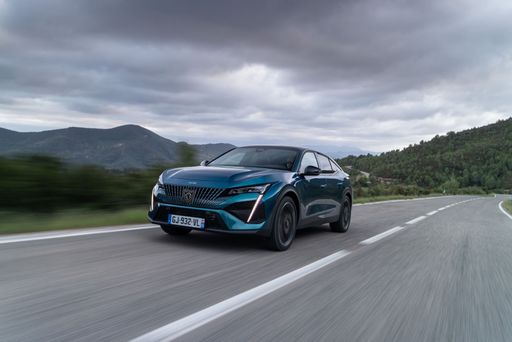
Peugeot 408
Costs and Consumption
View detailed analysis
Engine and Performance
View detailed analysis
Dimensions and Body
View detailed analysis
DS Automobiles DS 4
The DS 4 is a striking compact that wears couture-inspired styling like a tailored suit, and its cabin feels more boutique hotel than ordinary hatchback with premium materials and clever detailing. On the road it mixes poise with comfort, rewarding drivers who want a refined, characterful alternative to the usual suspects — and enjoy the odd admiring glance at the lights.
details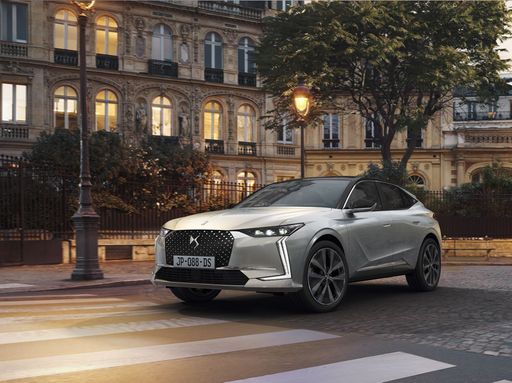
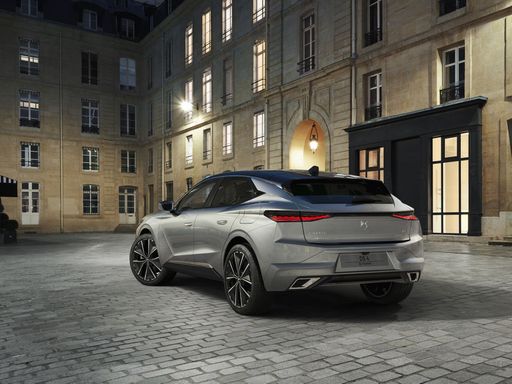
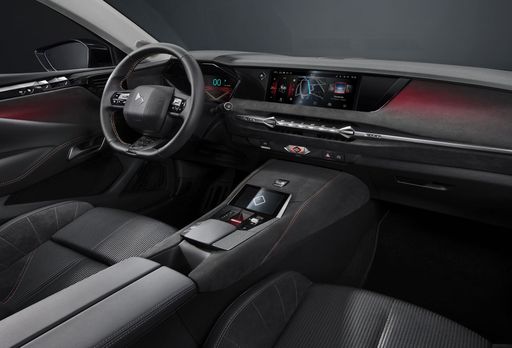
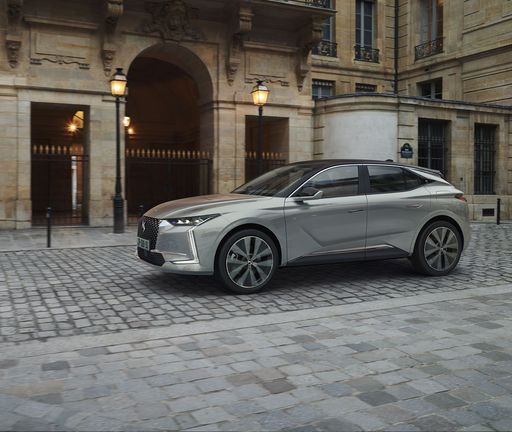
Peugeot 408
The Peugeot 408 blends a coupe-like roofline with practical sensibility, delivering striking looks and a surprisingly airy, premium-feeling cabin. On the road it prefers comfort and poise over manic thrills, making it a smart, stylish choice for buyers who want something a bit different from the usual family hatchback.
details
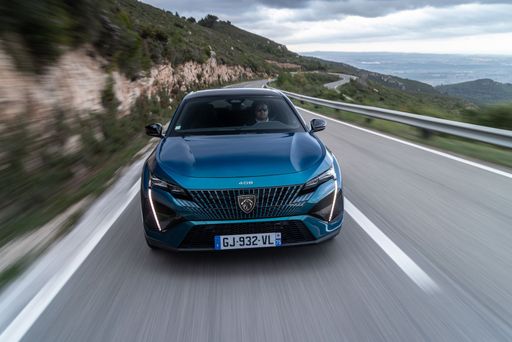
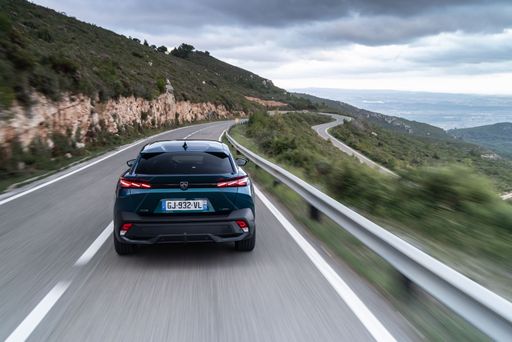
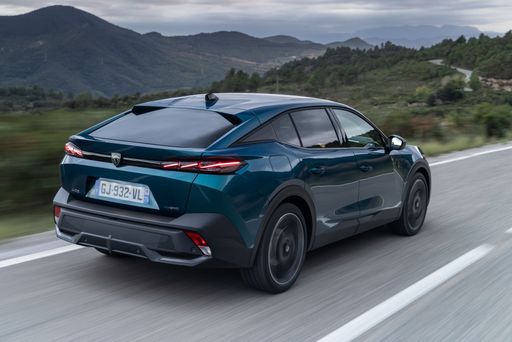
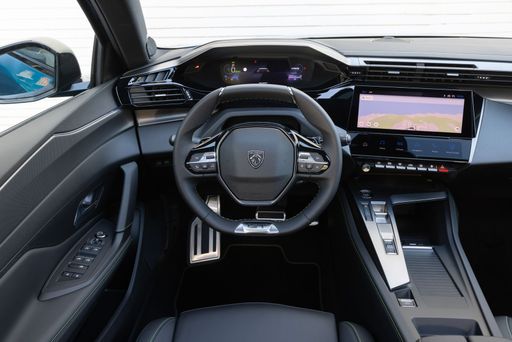
Costs and Consumption |
|
|---|---|
|
Price
34000 - 41700 £
|
Price
35100 - 48000 £
|
|
Consumption L/100km
5.20 L
|
Consumption L/100km
2.7 - 5.1 L
|
|
Consumption kWh/100km
-
|
Consumption kWh/100km
14.80 kWh
|
|
Electric Range
-
|
Electric Range
79 - 455 km
|
|
Battery Capacity
-
|
Battery Capacity
58.20 kWh
|
|
co2
137 g/km
|
co2
0 - 114 g/km
|
|
Fuel tank capacity
53 L
|
Fuel tank capacity
42 - 52 L
|
Dimensions and Body |
|
|---|---|
|
Body Type
Hatchback
|
Body Type
SUV
|
|
Seats
5
|
Seats
5
|
|
Doors
5
|
Doors
5
|
|
Curb weight
1558 kg
|
Curb weight
1544 - 1879 kg
|
|
Trunk capacity
430 L
|
Trunk capacity
471 - 536 L
|
|
Length
4400 mm
|
Length
4687 mm
|
|
Width
1830 mm
|
Width
1848 mm
|
|
Height
1470 mm
|
Height
1478 mm
|
|
Max trunk capacity
1240 L
|
Max trunk capacity
1528 - 1583 L
|
|
Payload
442 kg
|
Payload
371 - 456 kg
|
Engine and Performance |
|
|---|---|
|
Engine Type
Diesel
|
Engine Type
Electric, Petrol MHEV, Plugin Hybrid
|
|
Transmission
Automatic
|
Transmission
Automatic
|
|
Transmission Detail
Automatic Gearbox
|
Transmission Detail
Reduction Gearbox, Dual-Clutch Automatic
|
|
Drive Type
Front-Wheel Drive
|
Drive Type
Front-Wheel Drive
|
|
Power HP
130 HP
|
Power HP
145 - 225 HP
|
|
Acceleration 0-100km/h
10.90 s
|
Acceleration 0-100km/h
7.2 - 9.4 s
|
|
Max Speed
203 km/h
|
Max Speed
160 - 233 km/h
|
|
Torque
300 Nm
|
Torque
230 - 360 Nm
|
|
Number of Cylinders
4
|
Number of Cylinders
4
|
|
Power kW
96 kW
|
Power kW
107 - 165 kW
|
|
Engine capacity
1499 cm3
|
Engine capacity
1199 - 1598 cm3
|
General |
|
|---|---|
|
Model Year
2024 - 2025
|
Model Year
2024 - 2025
|
|
CO2 Efficiency Class
E
|
CO2 Efficiency Class
A, C, B
|
|
Brand
DS Automobiles
|
Brand
Peugeot
|
Is the DS Automobiles DS 4 offered with different drivetrains?
Available configurations include Front-Wheel Drive.




